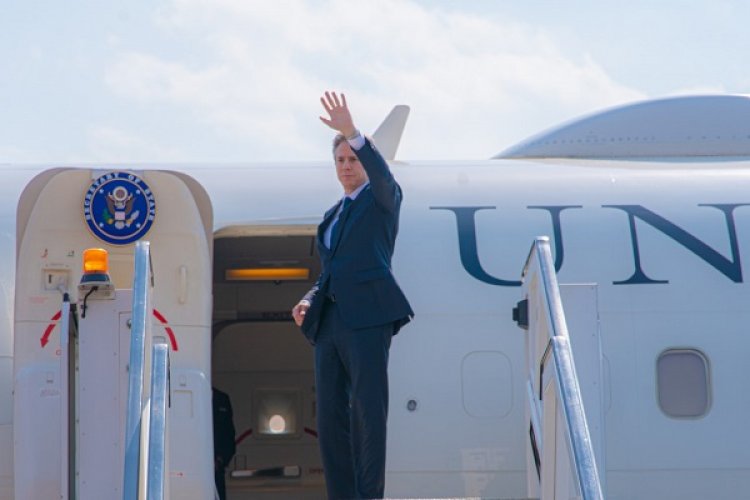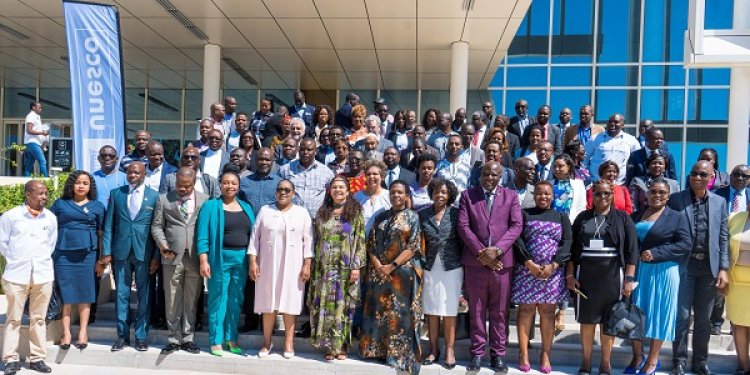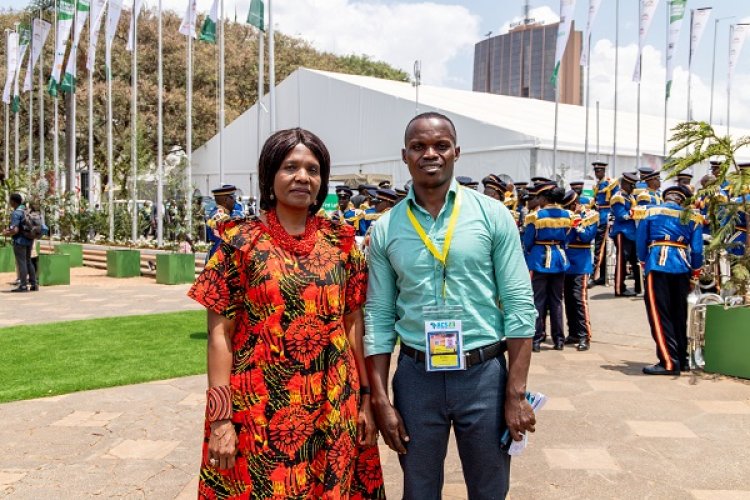A group of African journalists and content creators participating in the inaugural African Union (AU) Media Fellowship have hailed training in Germany for offering the much-needed skills to shape careers in ways that help Africa define its own narrative.
15 fellows selected among 800 applications from across Africa and the diaspora embarked on an international study trip to the city of Bonn and Berlin in Germany in mid-June as part of the year-long media fellowship programme jointly implemented by the AU and Germany Agency for International Cooperation (GIZ).
The fellowship programme came as the AU and partners are keen on building capacities of African journalists and content creators to help reframe narratives and to ensure that stories about the continent are balanced and true to the experiences of its people, thereby breaking prevailing harmful and stereotypical narratives.
The drive is in line with Africa’s Agenda 2063 under which the continent seeks to be at the forefront of defining its own narrative.
New understanding
In Germany, the fellows, who hail from 13 African countries, held trainings on using new and emerging technologies to tell stories, followed with series of workshops and exchanges with government, civil society, media houses and cultural institutions in the country.

“I left two weeks later with a new way of understanding things, a new way of even thinking about my projects. It’s an opportunity that gave all of us multifaceted skills to change the narrative about our continent,” said Aissatou Fofana, one of the fellows from Cote d’Ivoire.
Other fellows include Sadou Alize Mouktar (Niger); Amira Sayed (Egypt) Areff Samir (South Africa); Johnson Kanamugire (Rwanda); Jeanine Fankam (Cameroun); Osei Kwame (Ghana); Yasser Machat (Tunisia) and Rivonala Razafison (Madagascar).
There is also Cecelia Maundu (Kenya); Sally Nyakanyanga (Zimbabwe); Nila Yasmin Faisal (Uganda); Severin Alega Mbele (Cameroun); Esther Namuhisa (Tanzania) and Carien Du Plessis (South Africa).
Also read: Rwandan Journalist wins outstanding AU Fellowship.
In particular, the group was the first ever largest representation of African journalists from the continent to participate at the Deutsche Welle Global Media Forum held in Bonn from June 20 – 21.
The forum served as an opportunity to exchange with media professionals, decision-makers and influencers in politics, education, culture, civil society, among others from across the globe.
Exclusive tours
They also held exclusive tours and exchange sessions at key institutions including newsrooms, research institutions, the national parliament popularly known as the German Bundestag, the German Federal Press Office and the ethnological museum, among others.

Fellows also took part in two-day training on Design Thinking to learn how to effectively use the core principles of Design Thinking to develop innovative solutions model of The Future of Journalism in Africa.
Also as part of the study trip to Germany, the Fellowship programme organisers invited several actors for a roundtable discussion on the Future of Digital Media in Africa.
Media experts delved into details on how technology can be used in the context of a changing communication landscape for citizen participation, as well as ways to close the digital divide while shaping the future of journalism in Africa.
It is expected that fellows will continue exploring these topics within the one-year long fellowship.
Second phase
According to the AU, the second phase of the study tour will commence with a series of meetings to the African Union Head Quarters in Addis Ababa, Ethiopia followed by visit the African Union Development Agency (AUDA- NEPAD) in South Africa.

“African journalists and content creators have a key role to play in defining Africa’s narrative and how we want Africans and the world to view the continent” said Leslie Richer, the African Union Director for Information and Communication.
“The AU Media Fellowship is an investment in the human capital of African journalists and storytellers to further develop their skills and help them maximise their potential to contribute to the continent’s development,” she added.








